Shakespeare Renaissance Quotes & Sayings
Enjoy reading and share 10 famous quotes about Shakespeare Renaissance with everyone.
Top Shakespeare Renaissance Quotes
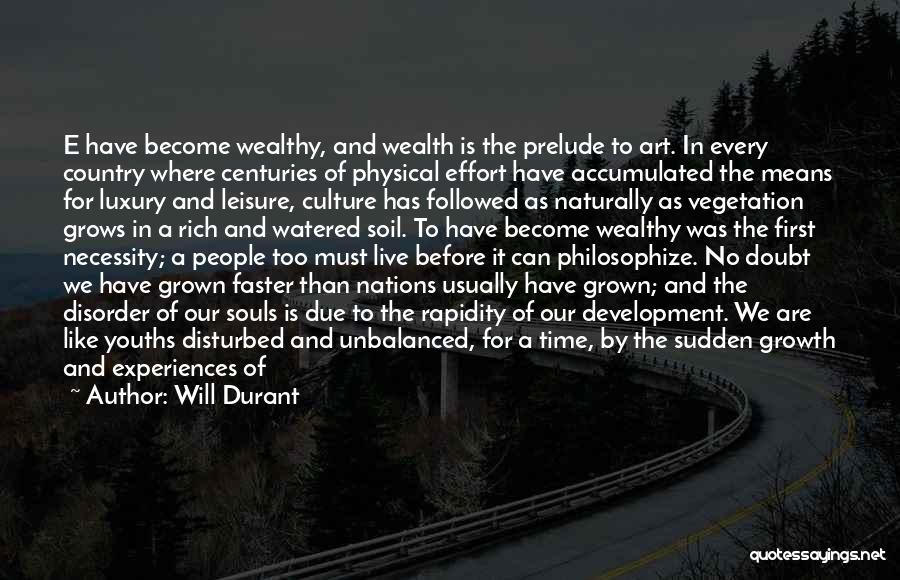
E have become wealthy, and wealth is the prelude to art. In every country where centuries of physical effort have accumulated the means for luxury and leisure, culture has followed as naturally as vegetation grows in a rich and watered soil. To have become wealthy was the first necessity; a people too must live before it can philosophize. No doubt we have grown faster than nations usually have grown; and the disorder of our souls is due to the rapidity of our development. We are like youths disturbed and unbalanced, for a time, by the sudden growth and experiences of puberty. But soon our maturity will come; our minds will catch up with our bodies, our culture with our possessions. Perhaps there are greater souls than Shakespeare's, and greater minds than Plato's, waiting to be born. When we have learned to reverence liberty as well as wealth, we too shall have our Renaissance. — Will Durant
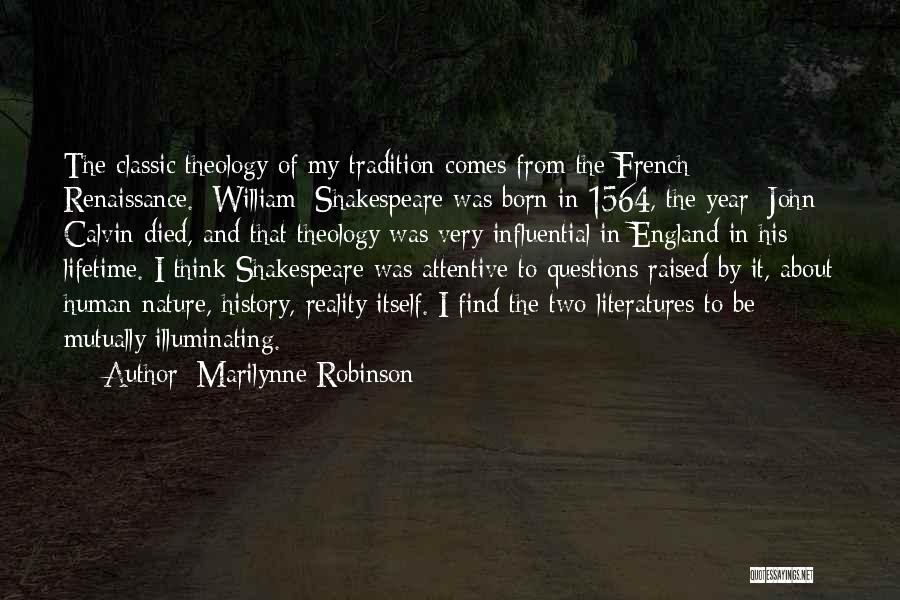
The classic theology of my tradition comes from the French Renaissance. [William] Shakespeare was born in 1564, the year [John] Calvin died, and that theology was very influential in England in his lifetime. I think Shakespeare was attentive to questions raised by it, about human nature, history, reality itself. I find the two literatures to be mutually illuminating. — Marilynne Robinson
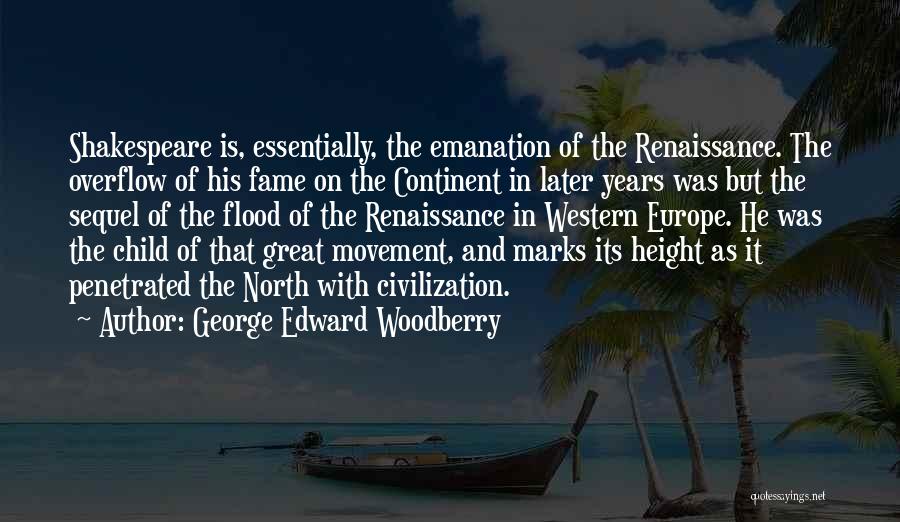
Shakespeare is, essentially, the emanation of the Renaissance. The overflow of his fame on the Continent in later years was but the sequel of the flood of the Renaissance in Western Europe. He was the child of that great movement, and marks its height as it penetrated the North with civilization. — George Edward Woodberry

All Renaissance drama, especially the works of Marlowe and Shakespeare, is profoundly concerned with shifting power relations within society. The individual was a new force in relation to the state. The threat of rebellion, of the overturning of established order, was forcefully brought home to the Elizabethan public by the revolt of the Earl of Essex, once the Queen's favourite. The contemporary debate questioned the relationship between individual life, the power and authority of the state, and the establishing of moral absolutes. Where mediaeval drama was largely used as a means of showing God's designs, drama in Renaissance England focuses on man, and becomes a way of exploring his weaknesses, depravities, flaws - and qualities. — Ronald Carter
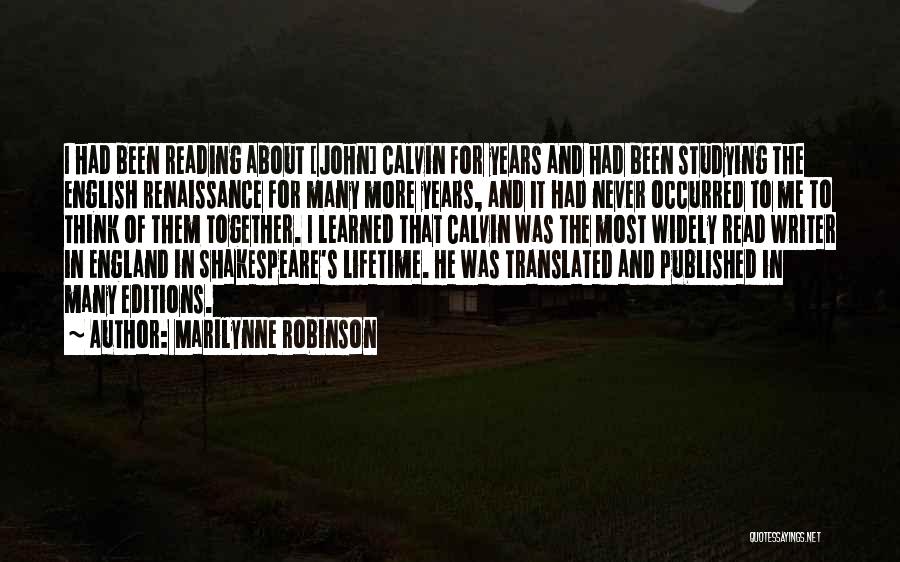
I had been reading about [John] Calvin for years and had been studying the English Renaissance for many more years, and it had never occurred to me to think of them together. I learned that Calvin was the most widely read writer in England in Shakespeare's lifetime. He was translated and published in many editions. — Marilynne Robinson
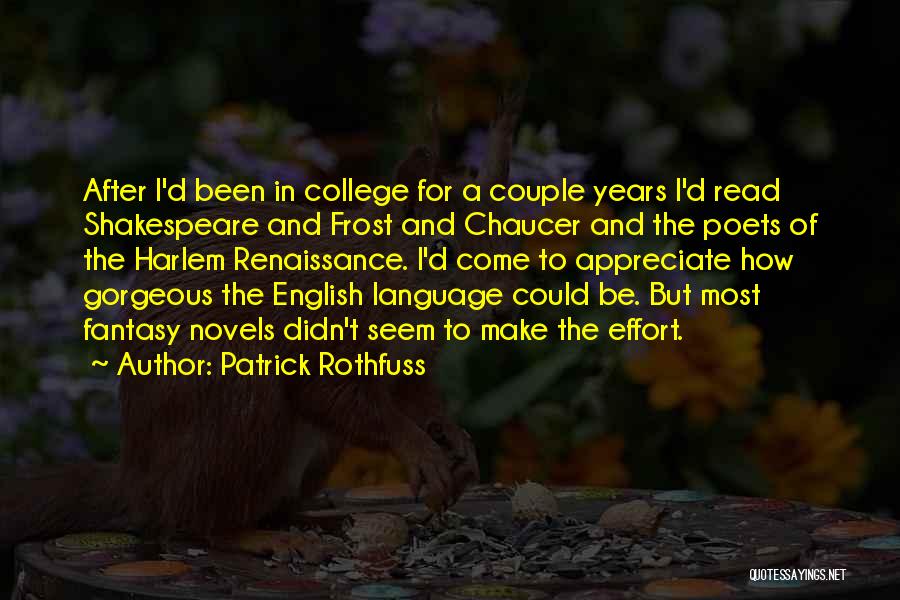
After I'd been in college for a couple years I'd read Shakespeare and Frost and Chaucer and the poets of the Harlem Renaissance. I'd come to appreciate how gorgeous the English language could be. But most fantasy novels didn't seem to make the effort. — Patrick Rothfuss
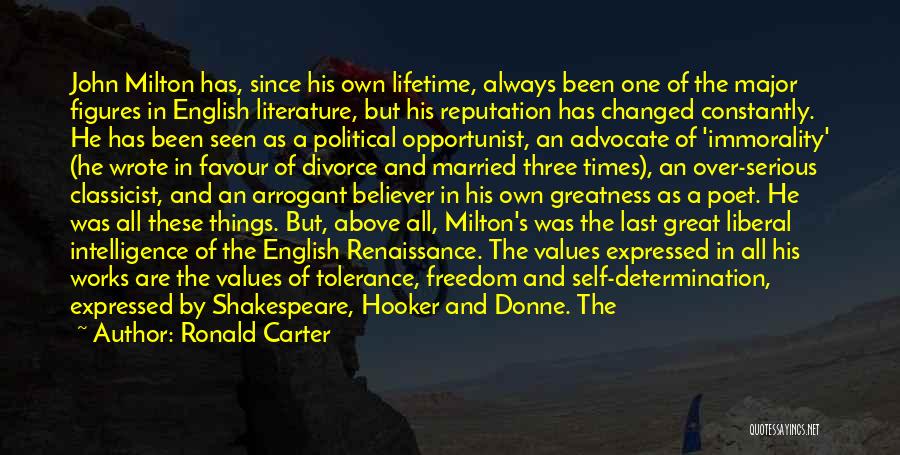
John Milton has, since his own lifetime, always been one of the major figures in English literature, but his reputation has changed constantly. He has been seen as a political opportunist, an advocate of 'immorality' (he wrote in favour of divorce and married three times), an over-serious classicist, and an arrogant believer in his own greatness as a poet. He was all these things. But, above all, Milton's was the last great liberal intelligence of the English Renaissance. The values expressed in all his works are the values of tolerance, freedom and self-determination, expressed by Shakespeare, Hooker and Donne. The basis of his aesthetic studies was classical, but the modernity of his intellectual interests can be seen in the fact that he went to Italy (in the late 1630s) where he met the astronomer Galileo, who had been condemned as a heretic by the Catholic church for saying the earth moved around the sun. — Ronald Carter
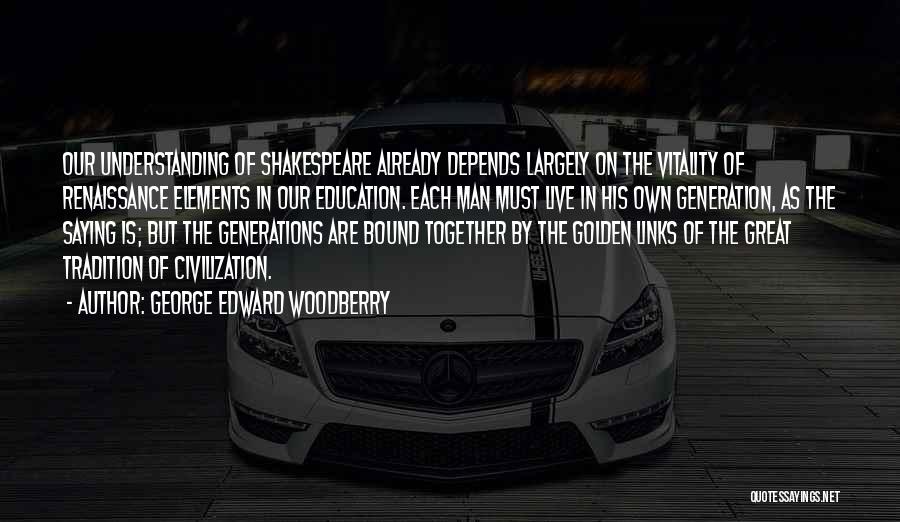
Our understanding of Shakespeare already depends largely on the vitality of Renaissance elements in our education. Each man must live in his own generation, as the saying is; but the generations are bound together by the golden links of the great tradition of civilization. — George Edward Woodberry

I think that Shakespeare had his male side and his female side extremely well developed. And this was a great quality of the Elizabethan, all-around Renaissance man. They were not afraid of their male side and their female side co-existing. This somewhere along the line got lost. And then it got misunderstood. — Ben Kingsley
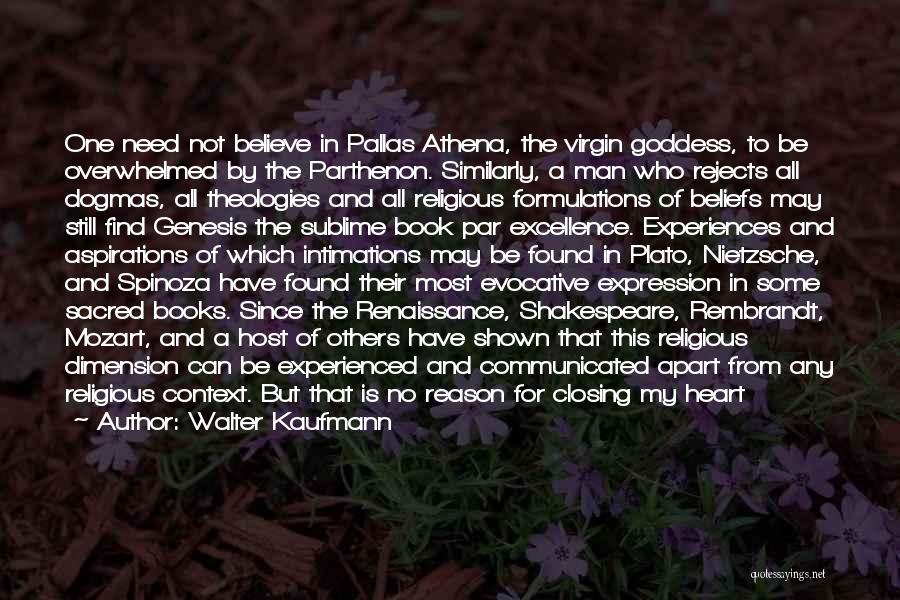
One need not believe in Pallas Athena, the virgin goddess, to be overwhelmed by the Parthenon. Similarly, a man who rejects all dogmas, all theologies and all religious formulations of beliefs may still find Genesis the sublime book par excellence. Experiences and aspirations of which intimations may be found in Plato, Nietzsche, and Spinoza have found their most evocative expression in some sacred books. Since the Renaissance, Shakespeare, Rembrandt, Mozart, and a host of others have shown that this religious dimension can be experienced and communicated apart from any religious context. But that is no reason for closing my heart to Job's cry, or to Jeremiah's, or to the Second Isaiah. I do not read them as mere literature; rather, I read Sophocles and Shakespeare with all my being, too. — Walter Kaufmann





